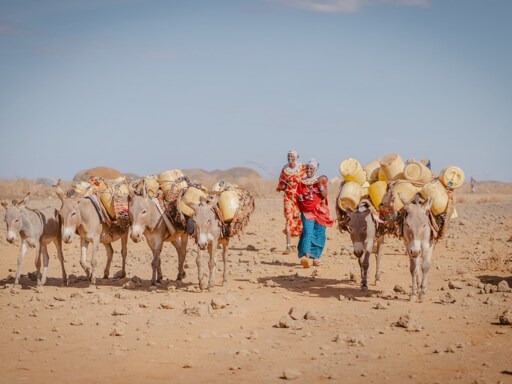Author: Al Jazeera
Published on: 02/04/2025 | 00:00:00
AI Summary:
Dukano Kelle, 34, is married off by her family at the age of 15. Her toil is like that experienced by thousands of women who live in nomad shelters. Aid groups say climate change is making droughts more devastating. Dukano brings up the water patiently, scoop by agonising scoop. Once full, the cans are strapped back on her donkey for the long journey home. With three boys and two girls aged between 14 and nine months to keep alive, Dukana bears a heavy responsibility. Wato Gato, now in her early 20s, was left alone in the harsh landscape to tend to the animals when she was just 15. Her family instructed her to find pasture for their precious goat herd - their only source of income during the droughts. She was forced to take the animals very far because the drought was so bad. Women and girls in one of Kenya’s driest regions are facing the greatest impacts of climate change. The drought deepens existing gender inequalities and threatens women’s incomes, health and safety. Women of all ages bear the burden of a worsening climate and a lack of money and food, but younger girls are often the least protected and most at risk. In the harsh sunlight, the heaps look like shimmering stones. The landmarks are mounds of animal bones – each skull a camel, cow or goat upon which the nomadic herders roamed the plains once depended.
Original: 1388 words
Summary: 239 words
Percent reduction: 82.78%


